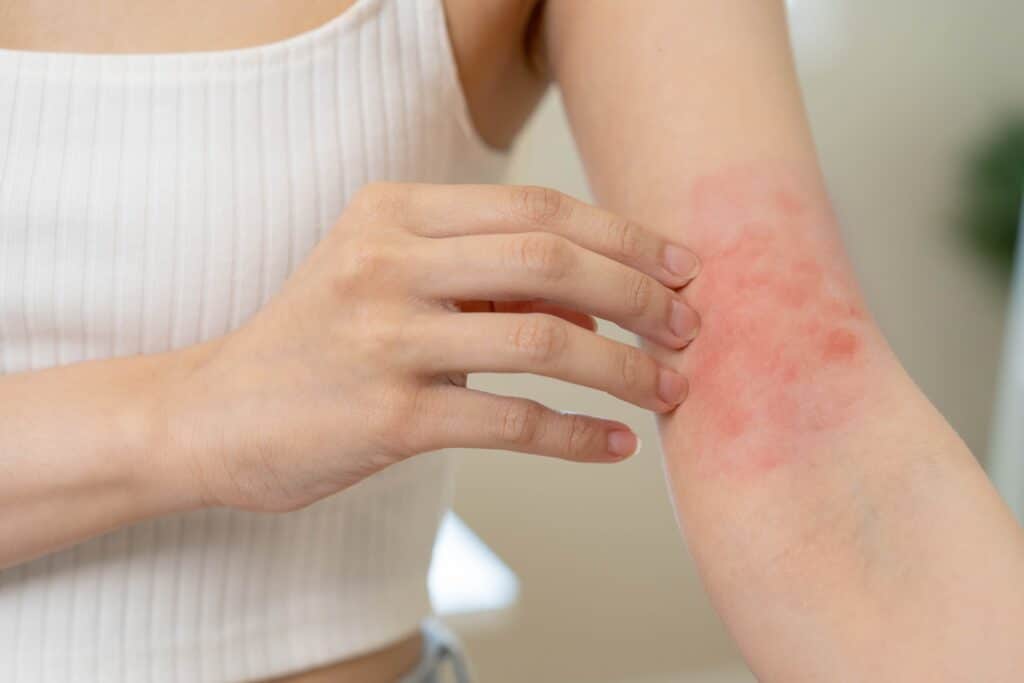It’s fall in Florida, and that means prime ragweed season. Many Floridians struggle with frustrating eczema flare-ups at this time of year, and ragweed could be at least partly to blame.
At Plantation Dermatology, we see many patients whose skin reacts to this common seasonal allergen. Dr. Steven Barilla, a fellowship-trained and double-board-certified dermatologist and Mohs surgeon, leads our team in providing effective solutions for eczema in our Plantation, FL, practice.
It all starts with uncovering the hidden potential causes of sudden eczema flare-ups. At this time of year, ragweed is a likely culprit.
Why Ragweed Affects Eczema
Did you know that one ragweed plant can generate a billion pollen grains every year? Ragweed pollen levels are particularly high here in Florida during late summer and fall.
For those with eczema, exposure to ragweed can trigger:
- Inflamed skin that feels itchy and irritated
- Dry patches that worsen with scratching
- Increased sensitivity leading to redness and discomfort
Because eczema already weakens the skin barrier, allergens like ragweed can worsen symptoms, making them harder to manage without proper care.
Have Eczema in Plantation? Treatments That Help
The good news is that eczema in Plantation is a treatable problem, even during peak ragweed season.
Finding relief from eczema during ragweed season often requires a mix of medical treatments and lifestyle strategies. At Plantation Dermatology, we create personalized care plans to ease your symptoms and help repair skin damage.
- Lifestyle strategies: Dr. Barilla may recommend simple adjustments such as using air filters, keeping windows closed during peak pollen season, and wearing protective clothing outdoors to limit exposure.
- Topical corticosteroids: These prescription creams or ointments reduce inflammation, calm redness, and provide fast relief from itching.
- Advanced moisturizers: Medical-grade moisturizers help restore hydration, strengthen the skin barrier, and minimize irritation caused by allergens like ragweed.
- Oral antihistamines: These can ease persistent itching and improve comfort during flare-ups triggered by pollen.
- Immunomodulators: For more stubborn eczema, these medications work by balancing the immune system’s response to reduce chronic inflammation.
- Antibiotics: If scratching or irritation leads to a secondary skin infection, antibiotics can help clear bacteria and promote healing.
By combining medical treatments with lifestyle modifications, Dr. Barilla and our team can help you stay comfortable even when pollen levels are at their peak.
Eczema Relief in Plantation, FL
Don’t let ragweed season rage on your skin. Contact Plantation Dermatology at 954-577-5161 to schedule an appointment and find relief from eczema in Florida.


